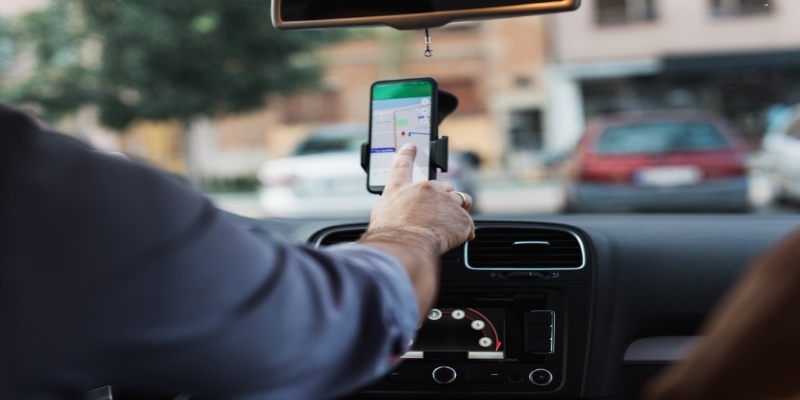When it comes to getting around in today's fast-paced world, there are more options than ever before. Gone are the days of waving down a taxi on a busy street corner. Instead, we have rideshare apps that promise convenience and affordability. But do you use rideshare apps? Are they the right fit for your transportation needs? In this article, we'll take a closer look at the world of rideshare to help you decide if it's a service worth embracing.
The Rise of Rideshare Apps
In recent years, rideshare apps, alternatively known as ride-hailing apps, have experienced an unprecedented surge in popularity, captivating the global transportation landscape. Renowned platforms like Uber and Lyft have etched their names into the daily lexicon, presenting a compelling and frequently economical substitute for conventional taxi services.
With just a few effortless taps on your smartphone, the power to summon a ride materializes, whisking you away to your destination within mere minutes. This remarkable level of convenience has propelled these apps into the mainstream, making them an integral part of urban mobility solutions in countless cities across the globe.
The Benefits and Drawbacks of Rideshare Apps
Explore the world of rideshare apps to discover their advantages and disadvantages before your next ride.
Benefits of Rideshare Apps
When it comes to the benefits of rideshare apps, there's a lot more than meets the eye. These handy applications have revolutionized the way we move around, offering a multitude of advantages that cater to modern lifestyles.
Convenience: The primary benefit of using rideshare apps is their unparalleled convenience. No more standing in long taxi lines or searching for available cabs. With rideshare apps, you can request a ride from the comfort of your home or any location you happen to be in. It's like having a personal chauffeur at your fingertips.
Cost-Effective: Rideshare services are often more cost-effective than traditional taxis. Pricing is transparent, and you can get fare estimates upfront, avoiding any unpleasant surprises. Additionally, you can choose from different ride options to fit your budget, whether it's a standard ride or a more luxurious experience.
Accessibility: Rideshare apps have made transportation more accessible than ever before. They operate in many areas where traditional taxis might be scarce, providing rides in both urban and suburban regions. This increased availability ensures that you can rely on rideshare apps even in less densely populated areas.
Safety: Rideshare companies prioritize safety. Drivers undergo background checks, and you can track your ride in real-time using the app. This transparency adds an extra layer of security, giving you peace of mind during your journey.

The Drawbacks of Rideshare Apps
While rideshare apps offer numerous advantages, it's essential to consider the downsides as well.
Surge Pricing: During peak hours or high-demand periods, rideshare companies may implement surge pricing. This means you could end up paying significantly more for a ride than usual. To avoid this, consider waiting for the surge to pass or exploring alternative transportation options during peak times.
Driver Ratings: Both drivers and passengers rate each other in rideshare apps. While this system can encourage professionalism, it can also create pressure for both parties. Low driver ratings may result in drivers losing their jobs, leading to concerns about unfair ratings.
Reliability: Rideshare services heavily rely on the availability of drivers. Sometimes, you might experience longer wait times, especially during busy periods or in less-populated areas. If you have a tight schedule, this could be a drawback.
Privacy Concerns: Sharing your location and personal information with a rideshare app can raise privacy concerns. While companies claim to protect your data, there's always a level of risk involved when sharing such information online.
Rideshare vs. Traditional Transportation
Now that we've explored the benefits and drawbacks of rideshare apps let's compare them to traditional transportation methods.
Cost: Rideshare apps often offer competitive pricing, especially for short trips. However, for longer journeys, traditional taxis or public transportation might be more cost-effective.
Comfort: Rideshare vehicles vary in comfort, but you can typically expect a clean and well-maintained car. Traditional taxis also provide comfort, but the quality can vary depending on the service.
Availability: Rideshare apps have the upper hand when it comes to availability, especially in suburban areas. Traditional taxis can be harder to find outside of city centers.
Convenience: The convenience of rideshare apps is hard to beat. Booking a ride with just a few taps on your smartphone is a game-changer. Traditional taxis might require you to call and wait for dispatch.

Tips for Using Rideshare Apps
If you're considering using rideshare apps, here are some tips to enhance your experience:
Check for Promo Codes: Many rideshare apps offer promo codes for first-time users or special promotions. These can help you save money on your rides.
Plan Ahead: During peak hours, it's a good idea to plan your rides to avoid surge pricing and long wait times.
Be Courteous: Remember to be polite and respectful to your driver, as well as fellow passengers, if you're sharing the ride.
Safety First: Always double-check the driver's information and the car's license plate before getting in. Share your ride details with a friend or family member for added safety.
Rate Honestly: Provide honest feedback when rating your driver, but also be fair in your assessment.
Conclusion
So, do you use rideshare apps? The decision ultimately comes down to your specific transportation needs, budget, and personal preferences. Rideshare apps offer undeniable convenience, accessibility, and cost-effectiveness. However, they do have their drawbacks, such as surge pricing and privacy concerns.
Before deciding, consider the alternatives and weigh the pros and cons. Traditional transportation methods like taxis and public transit are still viable options in many situations. Ultimately, the choice is yours, but knowing the ins and outs of rideshare apps can help you make an informed decision that suits your lifestyle.







